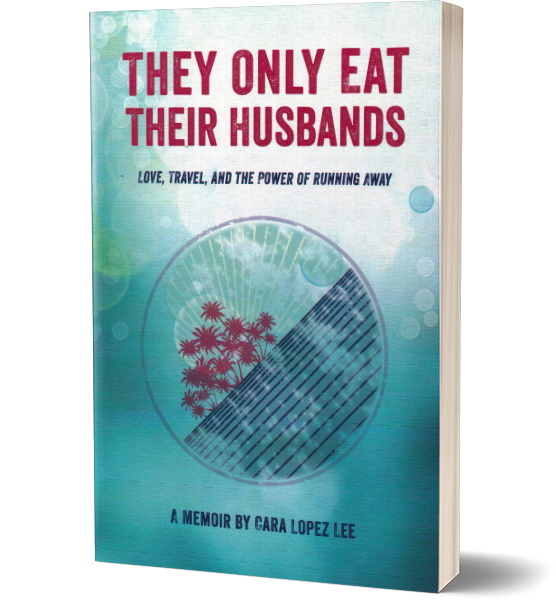America’s largest Chinatown seems naked this time around, now that I’ve seen the real Canton and Hong Kong. I’m walking through this San Francisco neighborhood with my Uncle Roy, who once lived in those other two cities, as a boy named Tsi Kaye.

America’s largest Chinatown seems naked.
“Do you want to look for that place where you said we could get good Dim Sum?” I ask. But Roy’s not hungry yet. Maybe the produce market on Stockton will change that.
Chinese shoppers on a mission nearly run us over in slow motion, bargaining over bins of wilting Chinese greens, bright fruit and a long pale tuber Roy calls “Chinese turnip.” At 77, Roy has more energy than all of them. But like them, he knows how to shop in Cantonese. As he buys a jar of pickled fish I grin at the sound of the Chinese words rolling casually out of his lips, in mellow, musical tones. I feel proud to stand by his side, thinking that the passersby who sometimes stare quizzically at my face might believe they’ve found their answer: ohhh, she’s Chinese!

Chinese shoppers on a mission nearly run us over.
Roy agrees that I must buy the “mochi choco balls with peanut jam” for my husband. They’re not Chinese, but the idea of pounded Japanese sticky rice coated with chocolate and filled with peanut butter is too weird to resist. Aside from the mochi, Chinatown still sells many of the same treats and trinkets they’ve been selling since I first came here as a little girl and discovered rice paper. Not only did it make an unusual candy wrapper, but I could also eat it! The sensation of the flavorless wrapper dissolving on my tongue delighted me. To this day, I still love rubbing the tummies of the tiny, rotund, fake jade Buddhas, as I try to think of somebody I can buy one for. “Cute, Cara… now what do I do with it?”
Roy can’t remember how to find the place with the memorable dim sum. So we choose the hole in the wall with the most steamer baskets. Unfortunately, the door is open to the Bay’s chilly spring air, so we’re cold… and so is Roy’s baked barbecue pork bun, or cha siu bau. “This is NOT good dim sum,” he says, though he insists I try a bite. My steamed pork bun tastes fabulous. I don’t like the boiled chiung fung dumplings stuffed with salted pork because I hate the cilantro – a taste-bud perversity, considering I’m part Mexican and Chinese, and both cultures make much use of the soapy-tasting leaf. But mediocre dim sum is like mediocre sex, so I eat it anyway.
Although my pork-stuffed tummy aches, we continue our walk. Strings of laundry flutter from several balconies, much as they do in China. In Portsmouth Square, people play cards, Mahjongg and Chinese chess – also much as they do in China. Groups of men huddle around the chess players, and Roy chuckles at their competing chatter. “They’re all giving him advice. They’re probably placing side bets.”
I already know this to be true. “Didn’t you see men playing this when you were a boy? It’s very common in Hong Kong and Canton, and I know they’ve been playing it for centuries.”
“I didn’t really pay attention,” Roy says. “I was just a boy.”

Chinese chess attracts advice.
As I peer down a street that tumbles to the waterfront, I recall looking down from my hotel room in Canton (Guangzhou) to the Li River and its bridges, or looking down some sign-strewn road in Hong Kong to Victoria Harbor. It strikes me that, although Chinatown was first created to keep the Chinese segregated, it’s also a place where Chinese people have long gathered for familiarity, continuity and support. Surrounded by the intense smells of barbecued pork, staring eyes of dried fish and cacophony of Cantonese voices, looking down through colorful signs to the jade water of San Francisco Bay—perhaps the locals, too, recall villages and cities on the other side of the Pacific.

Chinatown streets recall memories of China.
It’s barely an hour since our dim sum, when Roy finds the restaurant he’s been seeking, and insists we eat again. This time we order Won Ton soup. I’m excited to see that they make it the right way: with little balls of pork wrapped in won ton dough. Some restaurants cheat by tossing plain won ton skins into the soup, with no pork prize inside. That’s just wrong. One of my won tons seems undercooked, so I spit it out – pink and bloody – and wonder if I’ll get trichinosis. But the rest aren’t bad. The most fun of this meal is learning new Chinese words from Roy, though all I remember is chi saw, which means “toilet.”
As we walk off yet more pork, we pass the Cathay House, a venerable restaurant that strikes my uncle with a memory. He’d just joined the navy, during the Korean War, and was stationed at Treasure Island. The night before shipping out, he and a buddy had dinner and drinks at the Cathay House, where a sign advertised a “floor show” featuring a beautiful young Chinese woman.

The Cathay House strikes Roy with a memory.
As Roy drank his Tom Collins, he heard the tune, “A Pretty Girl is Like A Melody,” and looked up to see the pretty girl from the sign glide onstage, holding balloons in front of her bare breasts and nether parts. He was stunned. “Neither of us had seen anything like this before.” The balloons soon vanished and large feathered fans took their place. To this day, Roy doesn’t seem quite sure of what he saw. “To us it looked like she was nude. I don’t know, maybe we had an active imagination.”

A sailing buddy & Roy dine at Cathay House (1950).
Sure, they may have been just another couple of sailors watching a striptease in a smoky room. But for me that long ago fan dance is veiled in mystery, created simply by the passage of time.

Uncle Roy stands at the Chinatown Gate (May, 2009).
As I walk on with my grandmother’s brother, who looks more like her with each passing year, I wonder when my face, too, will take on the moon-shape of our ancestor, Bing Sum, who arrived in this city more than a century ago. I feel more connected to San Francisco than ever. I’m among my people, even if they don’t know it. An ancient musical note plays against my bones. The echoes of the past reverberate in my gut.
Or maybe that’s the year’s supply of pork I just ate.




